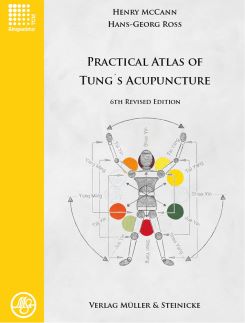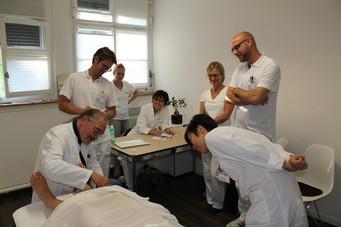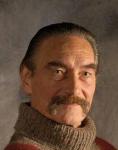Tung's Acupuncture
Planning
03-05-2024
04-05-2024
14:00-00:00
Inleiding/Introduction
Master Tung’s Acupuncture
Basic Concepts, Essential Points, and Dao Ma Groups
Workshop by Prof. Dr. Hans-Georg Ross,

TCM History
Throughout the history of Chinese medicine there have been several currents of Chinese medical practice. Some were well seated in the Confucian scholar tradition associated with the transmission of canonical writings such as the Huang Di Nei Jing. Alongside and concurrent to these traditions, China also had family lineages that were more or less kept as trade secrets among small groups of people. Over the last two thousand years of Chinese history, these family lineages have come and sometimes gone entirely if there were no heir to receive the information. Furthermore, even when these secret family traditions were taught, sometimes the true depth of information was withheld. This very traditional aspect of Chinese culture can certainly be a negative and dark one in the realm of medicine, especially since the greatest and most important texts of Chinese medicine (e.g., the Huang Di Nei Jing, Nan Jing, etc…) have always been transmitted openly and freely. In Chinese there is a phrase that “Medicine is the Art of Compassion” (醫為仁術 yi wei ren shu). Secret lineages of medicine that are not taught openly and possibly even allowed to die out due to the selfish motivation to retain knowledge or power in a select number of individuals stand in direct opposition to compassion. Tung’s acupuncture is one previously secret ancient family lineage of medicine that, thanks to the openness of its last proponent, has survived and nourished in modern times to the benefit of countless suffering patients.
PointsLocations and
Inhoud/Content
Introduction
Theoretical Background – Treatment Strategy
-
Holographic (Taiji-) correspondence
-
Channel correspondence
-
Tissue correspondence, and
-
Arrangement of point location in zones
Doelstellingen/Objectives
-
De opleiding is gericht op het aanleren van technische & exact-wetenschappelijke kennis en is van toepassing zoals bepaald binnen de Zorg STEM-opleidingen
- De opleiding is gericht op het aanleren van technische kennis en & exact-wetenschappelijke kennis en de toepassing ervan in het Postgraduaat Acupunctuur Hoger Onderwijs, gepubliceerd op onderwijskiezer.be en/of als bijscholing hiervan
Point studies – Tung’s Specific Extra Points
You will become familiar with a basic set of important acupuncture points from Master Tung’s repertoire and their combination (Dao Ma groups). With reference to what you have learnt in the theoretical section you will be able to understand their mode of action and the rationale behind their specific usage in therapy. Points and treatment examples will be presented with a focus on pain, motor disorders, and internal diseases.

- You will practice point location and needling.
- The material covered will be immediately useful in your clinic.
Hans-Georg Ross is a licensed acupuncturist (Chamber of Physicians, Düsseldorf). He received his training in TCM and Acupuncture from the DÄGfA and the University Witten / Herdecke, Germany. Prior to his professional training in Acupuncture Dr. Ross was a Professor of Neurophysiology at the Heinrich-Heine-Universität Düsseldorf and a Research Fellow at the University of Western Ontario (London / Canada) and at the Indian Institute for Chemical Biology (Calcutta / India). He is a Fellow of the Indian Academy for Neurosciences and an Emeritus Member of the Society for Neuroscience (USA). Dr. Ross has taught Acupuncture throughout Europe. He works as a general practitioner with focus on acupuncture.
Toelatingsvoorwaarden/conditions of admission
-
Diploma Acupuncture
-
Acupunctuurdiploma of PGAC 2 & PGAC 3 bij ICZO vzw
Datum/Data
- 03 + 04 May 2024
Lesuren/Timing
-
Friday : 14.00 - 21.00 H
-
Saturday: 09.00 - 16.30 h
Docent

-
Medical Docter MD
-
General Practitioner with a focus on Acupuncture
-
Author: “Practical Atlas of Tung’s Acupuncture” (with Henry McCann)
Accreditaties/Accreditation
Het aantal accreditatiepunten verschilt per beroepsverenging en wordt best nagezien bij de betreffende organisatie
BAF, EUFOM , NVA , NWP , ZHONG ( punten)
Studiepunten/Credits
2 = Een studiepunt is een binnen de Vlaamse Gemeenschap aanvaarde internationale eenheid die overeenstemt met ten minste 25 en ten hoogste 30 uren voorgeschreven onderwijs-, leer- en examenactiviteiten en waarmee de studiebelasting van elke opleiding of elk opleidingsonderdeel wordt uitgedrukt
Cursusgeld/Fee
400 €
KMO-P
Kom je in aanmerking? zie https://www.iczo.be/nl/kmo-portefeuille
Studiegebied
Traditional Chinese Medicine Oosterse Gezondheidszorg
Voertaal/Language
English
Diversen/Miscellaneous
-
Continuous coffee break (coffee, tea, water) + sandwich lunch, soup, salad bar, coffee, tea, water) - Doorlopende coffee breaks (koffie, thee, water) + broodjeslunch (broodjes, soep, saladebar, koffie, thee en water, ....)
-
Free underground parking for your car - Gratis ondergrondse parking voor Uw wagen
-
De organisatie behoudt zich het recht voor om eventuele wijzigingen in het programma en planning aan te brengen.
